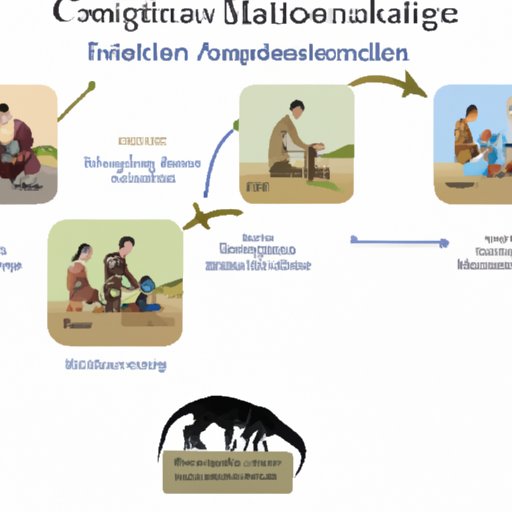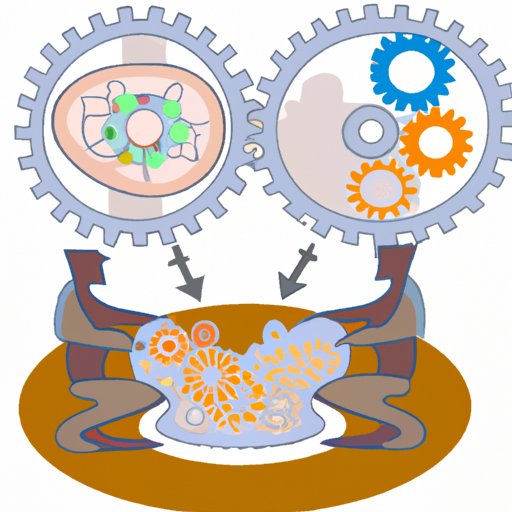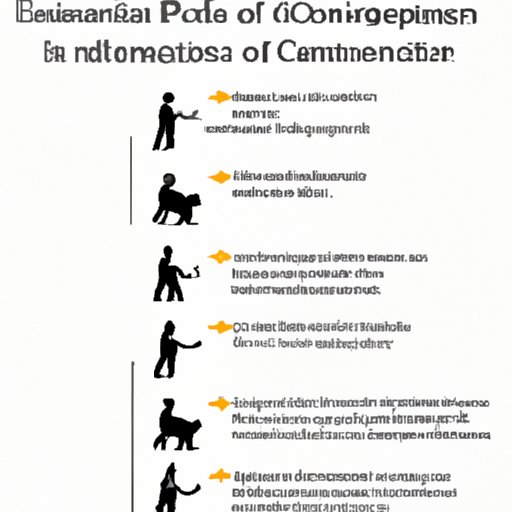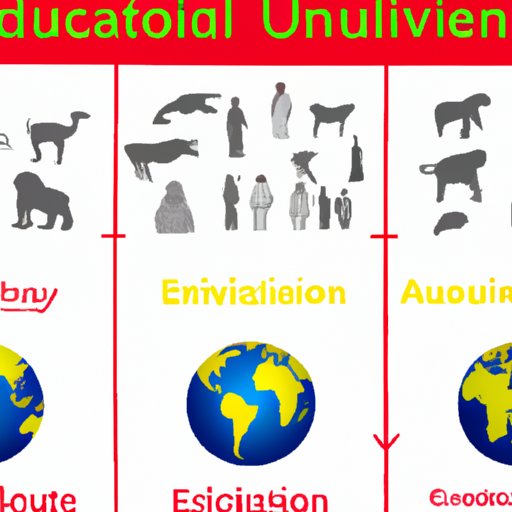Introduction
Cultural evolution is the process of change in a society’s beliefs, customs, values, and norms over time. It is an important concept in anthropology as it allows us to understand how societies have changed in the past and how they continue to evolve in the present. This article will explore different aspects of cultural evolution, including its history, the role of adaptation, the mechanisms of change, the influence of technology, the effects of social interaction, and the comparison of different societies.
Examining the Historical Development of Cultural Evolution
To gain a better understanding of cultural evolution, it is important to examine its historical development. Early human societies were characterized by small, nomadic bands that hunted and gathered for food. They lived in close-knit communities and relied on their environment for sustenance. As they moved from place to place, they adapted to different climates and encountered new cultures, which led to the development of new technologies and practices.
Prehistoric cultures also underwent significant changes over time. As they settled into permanent dwellings, they began to cultivate plants and domesticate animals, which allowed them to develop more complex societies. Additionally, ancient civilizations such as the Sumerians, Egyptians, and Greeks had a major influence on the development of culture. They developed systems of writing, mathematics, and law, which spread throughout the world and shaped the development of culture in many regions.

Exploring the Role of Adaptation in Cultural Evolution
Adaptation is an important factor in cultural evolution. It is the process of adjusting to changing conditions in order to survive and thrive. Different societies adapt in different ways depending on their circumstances. For example, some societies may adopt new technologies or practices in order to remain competitive, while others may maintain traditional customs in order to preserve their identity.
There are several types of adaptations that can occur in a society. Social adaptation refers to changes in behavior or attitudes in order to fit in with the norms of a particular group. Technological adaptation involves the adoption of new technologies or techniques in order to improve efficiency or productivity. Economic adaptation involves the use of resources in order to maximize profits or minimize costs.
Adaptation can have both positive and negative effects on a society. On one hand, it can lead to the development of new technologies or practices that can benefit the society as a whole. On the other hand, it can lead to the erosion of traditional customs and values, which can weaken the sense of identity and cohesion within the group.

Investigating the Mechanisms of Cultural Change
In addition to adaptation, there are several other mechanisms of cultural change. Migration and exchange are two common factors that can cause cultures to evolve. When people migrate from one region to another, they bring their cultures with them and can introduce new ideas and practices to the area. Similarly, when people engage in trade or other forms of exchange, they can share their cultures and create new cultural hybrids.
Conflict and diplomacy can also have an impact on cultural evolution. Conflicts between different groups can lead to the spread of new ideas and practices, while diplomacy can help to resolve conflicts and create a more unified culture. Additionally, technological advances can play a role in cultural evolution. As new technologies are developed, they can be adopted by societies and used to shape their cultures.

Analyzing How Technology Influences Cultural Evolution
Technology has a profound impact on cultural evolution. It can enable societies to adapt to their environments more quickly and efficiently, and it can facilitate the spread of information and ideas. New technologies can also allow societies to interact with each other more easily, which can lead to the exchange of cultures and the creation of new cultural hybrids.
It is important to consider the benefits and challenges of technology when examining its impact on cultural evolution. On one hand, new technologies can open up new possibilities and make life easier. On the other hand, they can also lead to increased inequality, environmental degradation, and other negative consequences.
Understanding the Impact of Social Interaction on Cultural Evolution
Social interaction is another important factor in cultural evolution. It shapes culture by allowing individuals to share their ideas and experiences with each other. It also creates a sense of belonging and identity, which can help to strengthen a society’s culture. Social pressure can also influence cultural evolution, as individuals may conform to certain norms in order to fit in with their peers.
The rise of social media has also had an impact on cultural evolution. It has provided a platform for people to interact with each other and share their cultures with a wider audience. However, it can also lead to the spread of misinformation and the reinforcement of stereotypes, which can have a negative effect on cultural evolution.
Comparing Different Societies and Their Patterns of Cultural Evolution
Different societies have experienced different patterns of cultural evolution. Geography can play a role in this, as different regions have different climates, resources, and environments that can shape the development of culture. Globalization has also had an impact, as it has facilitated the spread of ideas, technologies, and practices around the world.
When comparing different societies, it is important to consider the effects of migration and exchange. These processes can lead to the blending of cultures and the emergence of new cultural hybrids. Additionally, it is important to consider the effects of conflict and diplomacy, as these can shape the way cultures evolve over time.

Evaluating the Influence of Human Behavior on Cultural Evolution
Finally, it is important to evaluate the influence of human behavior on cultural evolution. Language, religion, and other aspects of human behavior can shape the development of culture. For example, language can be used to convey ideas and beliefs, while religion can provide a framework for understanding the world and can influence the values and norms of a society.
Human behavior can also influence the rate of cultural evolution. Open-minded individuals who are willing to embrace change are more likely to drive cultural progress, while closed-minded individuals who resist change can impede it. Understanding how human behavior can affect cultural evolution can help us to better understand the dynamics of cultural change.
Conclusion
In conclusion, cultural evolution is an important concept in anthropology that allows us to understand how societies have changed in the past and how they continue to evolve in the present. It is influenced by a variety of factors, including adaptation, migration and exchange, conflict and diplomacy, technology, social interaction, and human behavior. By examining these different aspects of cultural evolution, we can gain a better understanding of how cultures develop and change over time.
This article has provided an overview of cultural evolution, exploring its history, the role of adaptation, the mechanisms of change, the influence of technology, the effects of social interaction, and the comparison of different societies. It has also evaluated the impact of human behavior on cultural evolution, demonstrating how language, religion, and other aspects of behavior can shape culture. This information can be used to inform future research on cultural evolution and its implications for society.
(Note: Is this article not meeting your expectations? Do you have knowledge or insights to share? Unlock new opportunities and expand your reach by joining our authors team. Click Registration to join us and share your expertise with our readers.)
